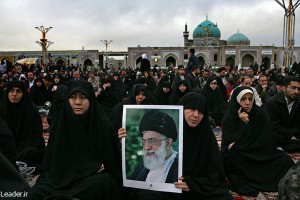US Tries to Stir Up Trouble for Iran
As President Trump’s foreign policy falls deeply under the Israeli-Saudi spell, his Mideast diplomats are stirring up conflict against Iran and drawing a rebuke from Iraq, as ex-CIA analyst Paul R. Pillar explains.
In Iraq, as in Syria, the imminent extinguishing of the mini-state of the so-called Islamic State (ISIS) is raising the question of whether U.S. objectives in Iraq really are focused on countering ISIS or will balloon into some other reason to keep American forces there indefinitely.
The most common rationale voiced by those arguing for an indefinite stay is to counter Iranian influence. The rationale echoes larger alarms, being sounded by the Trump administration as well as others, about an Iran that supposedly is on the march and threatening to bring most of the Middle East under its sway. The alarms are filled with unsupported zero-sum assumptions about what any Iranian action or influence means for U.S. interests.
Those tempted to succumb to the alarms as they apply to Iraq should bear in mind two important realities about the Iraqi-Iranian relationship.
The first is that the biggest boost to Iranian influence in Iraq was the U.S. invasion of March 2003. The net effect of the whole costly, unpleasant history of the United States in Iraq — including the initial conquest, later surge, and all the ups and downs of occupation — as far as Iranian influence is concerned is to have made that influence much greater than it ever was while Saddam Hussein was still ruling Iraq.
If Iranian influence were the overriding worry about the Middle East that the rhetoric of the Trump administration makes it out to be, this record strongly suggests that an unending U.S. military expedition would not be a smart way to assuage that worry.
…click on the above link to read the rest of the article…
